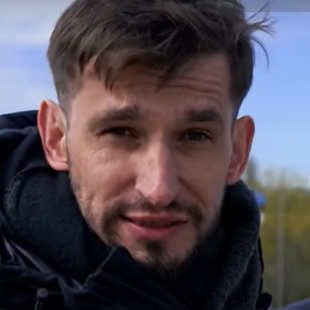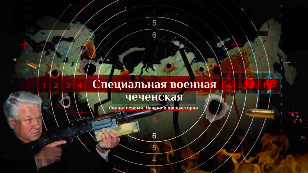
Konstantin Goldentsvaig
Career
Журналист, корреспондент и автор документальных фильмов, работавший на телеканалах НТВ, RTVI и «Дождь». Лауреат премии «Редколлегия» (2021).
Date of birth
03.04.1983
Filmography
4
In January 2025, thirty years will have passed since the infamous New Year’s storming of Grozny. From a tactical perspective, the battles in the capital of rebellious Chechnya turned into one of the Kremlin’s greatest failures in modern military history. In human terms, it resulted in tens of thousands of deaths, primarily among civilians who were ostensibly the ones being "liberated."
It was during those days that it became clear: the blitzkrieg launched by Moscow had devolved into a protracted war—the First Chechen War. The first of the major wars waged by modern Russia. The parallels between that "special operation" and the current one are obvious to anyone. But are they mere coincidences or part of a broader pattern? Can it be argued that today’s Russia and the war in Ukraine have their roots in that Chechen war? And why did the attempt to forcefully reshape a tiny republic ultimately end up reshaping the Russians themselves?
Key figures of the era share their insights into the decisions that led to the war.

1
2025
133 min
Thirty years ago, Russia stood at a crossroads. In rebellious Chechnya, there was still an opportunity to step back and choose negotiations. Alternatively, the state could place its final bet on the "military approach" as the preferred method for resolving future conflicts.
By the spring of 1995, after suffering the loss of thousands of soldiers, the Russian military had seized control of almost the entire territory of the rebellious republic—yet not of the Chechen people. Resistance only grew stronger, and all attempts at negotiation collapsed. Why? What gamble was Moscow making? Why did the country remain silent as it witnessed the crimes of its military? And why did federal television channels—unlike ever before—attempt to awaken the Russian public by openly criticizing their own army and state?
The film also examines the events of Budyonnovsk and Pervomayskoye—Russia’s first major terrorist attacks, seen as acts of "retaliation" on its own soil. It explores the authorities’ unprecedented attempt to negotiate with terrorists to save lives—potentially at the cost of new attacks. Was negotiation the right choice at the time?
The First Chechen War served as a testing ground for all of Russia’s recent history. This is the focus of the second part of Konstantin Goldentsvaig’s film.

1
2025
118 min
In the final part of Konstantin Goldentsvaig's film, the focus shifts to the uneasy peace in Chechnya—a peace that proved far more difficult to achieve than war.
What forces and motives truly stood behind “peacemaker” Alexander Lebed in 1996? Was the Khasavyurt Accord a salvation—or a betrayal? Why did the peace in Chechnya last less than three years? Who really won that war? And is a third Chechen war still a possibility?

1
2025
83 min
Throughout 2024, as the conflict in Ukraine drags on, the leadership of European countries has been increasingly warning their citizens about a looming war with Russia—this time on EU territory. Even timelines are being mentioned: anywhere from two to eight years. But what lies behind these alarming statements? Is it a calculated effort to remind Europeans of the importance of supporting Kyiv? Or is the prospect of a war between Russia and the West truly real?
If a large-scale war is destined to begin, then where, how, and why might it erupt? Lithuania, Finland, Poland, Estonia—journalists from Dozhd traveled across the European countries neighboring Russia to ask local politicians, experts, and military personnel the tough questions. They also sought to capture the sentiments of residents in these border regions, people who may be standing on the edge of catastrophe.

7
2024
150 min